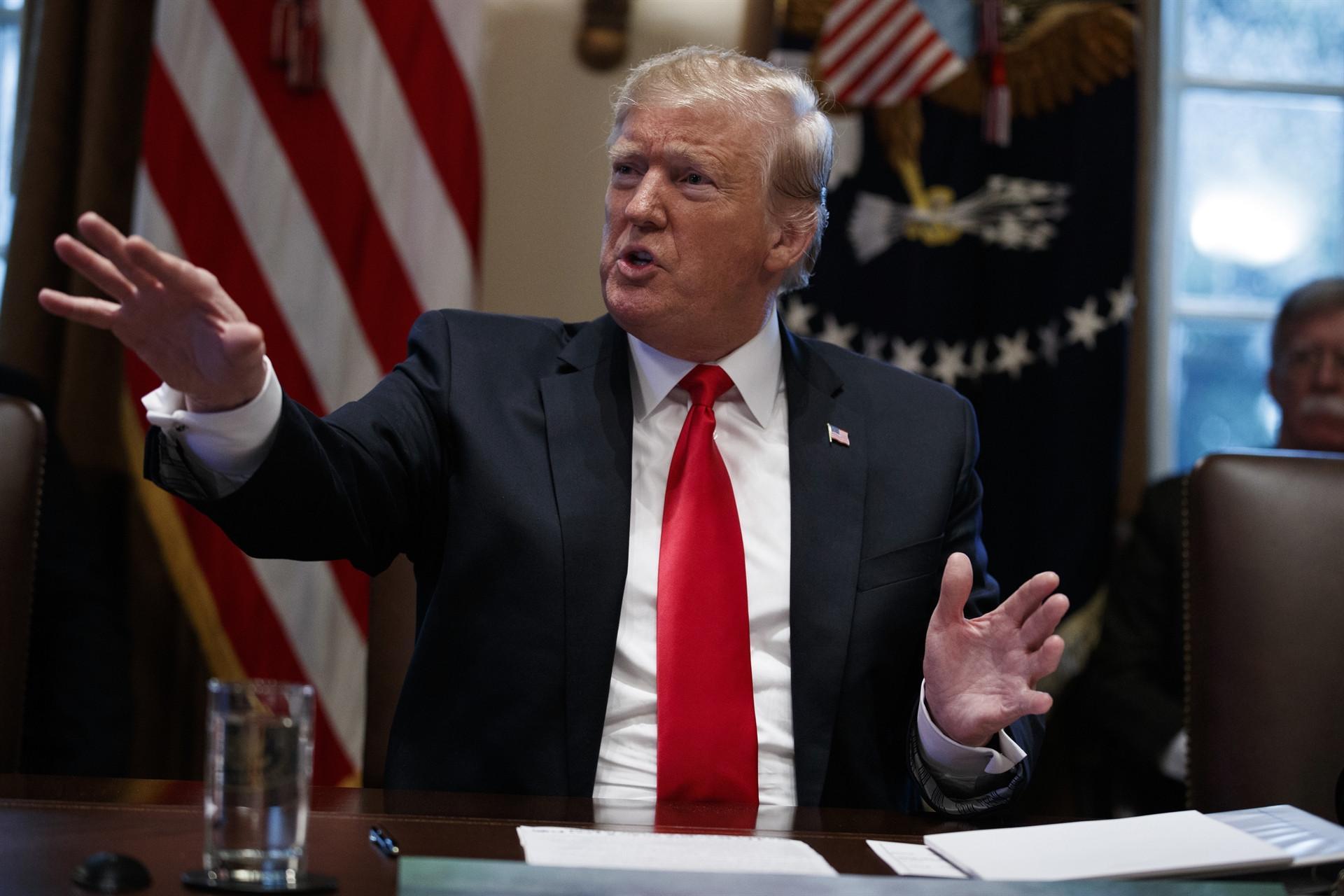
U.S. President Donald Trump has said the United States would get out of Syria slowly “over a period of time” and would protect the Washington-backed Kurdish group that Turkey lists as a terrorist organization, as tensions rise in the war-torn country.
Speaking to reporters at a cabinet meeting on Jan. 2, Trump said he was not happy that the Kurds were selling oil to Iran, but that he wanted to protect them either way.
“I didn’t like the fact that they’re selling the small (amount of) oil that they have to Iran, and we asked them not to sell it to Iran... We’re not thrilled about that. OK? I’m not happy about it at all,” he said. “We want to protect the Kurds, nevertheless. We want to protect the Kurds, but I don’t want to be in Syria forever. It’s sand. And it’s death.”
Turkey considers the U.S.-backed YPG as the Syrian offshoot of the PKK, which it lists as a terrorist organization as the U.S. and the EU also do.
Last month Trump made the unexpected decision to withdraw 2,000 U.S. troops from Syria's YPG-held territory, sparking criticism from many allies and security aides, including his own cabinet.
After the announcement, Secretary of Defense James Mattis sent in his resignation letter.
“We’re getting out and we’re getting out smart,” Trump said on Jan. 2. “I never said I’m getting out tomorrow.”
The president went on to refute reports that he had given a four month time table for the withdrawal, saying that it would happen over a period of time. He, however, did not offer a clear time frame for when all U.S. troops would be out of the area.
Regime says hundreds of YPG members leave Manbij
The Syrian regime said Jan. 2 hundreds of YPG members had withdrawn from the northern city of Manbij near the border with Turkey, days after they appealed to Damascus for support against a threatened Turkish offensive.
Meanwhile in the northwest of the country, clashes between jihadists and rebels have killed almost 50 people over two days, a war monitor said Jan. 2.
Clashes flared Jan. 1 between Al-Qaeda-linked coalition Hayat Tahrir al-Sham (HTS) and an alliance of rebel groups in western Aleppo province.
On Jan. 2, the fighting spread to the neighbouring province of Idlib, the country’s last opposition bastion, the Syrian Observatory for Human Rights said.
"The fighting intensified and spread to the north and southeast of Idlib province," said Rami Abdel Rahman, who heads the Britain-based Observatory.
He said that 48 people have been killed, updating the Jan. 1 toll of 19.
Turkey-backed group fights with Al Qaeda jihadists
HTS had on Dec. 31 accused opposition group Nureddine al-Zinki of killing five of its fighters, and launched an offensive against opposition positions.
Nureddine al-Zinki is a major player in the National Liberation Front (NLF), a Turkish-backed opposition alliance.
Abdel Rahman said Jan. 2 that other NLF factions had now joined the fighting, while the jihadists had advanced into seven areas.
Those killed include 24 HTS jihadists and 19 Nureddine al-Zinki fighters, the war monitor said.
HTS and other jihadist groups control more than half of Idlib province, while the NLF holds most of the rest.
The area sees frequent clashes between factions, including targeted assassinations and bomb attacks.
The NLF on Jan. 2 announced a "general mobilisation" to "counter (HTS) aggression".
HTS meanwhile said it had arrested "dozens" of Zinki fighters.